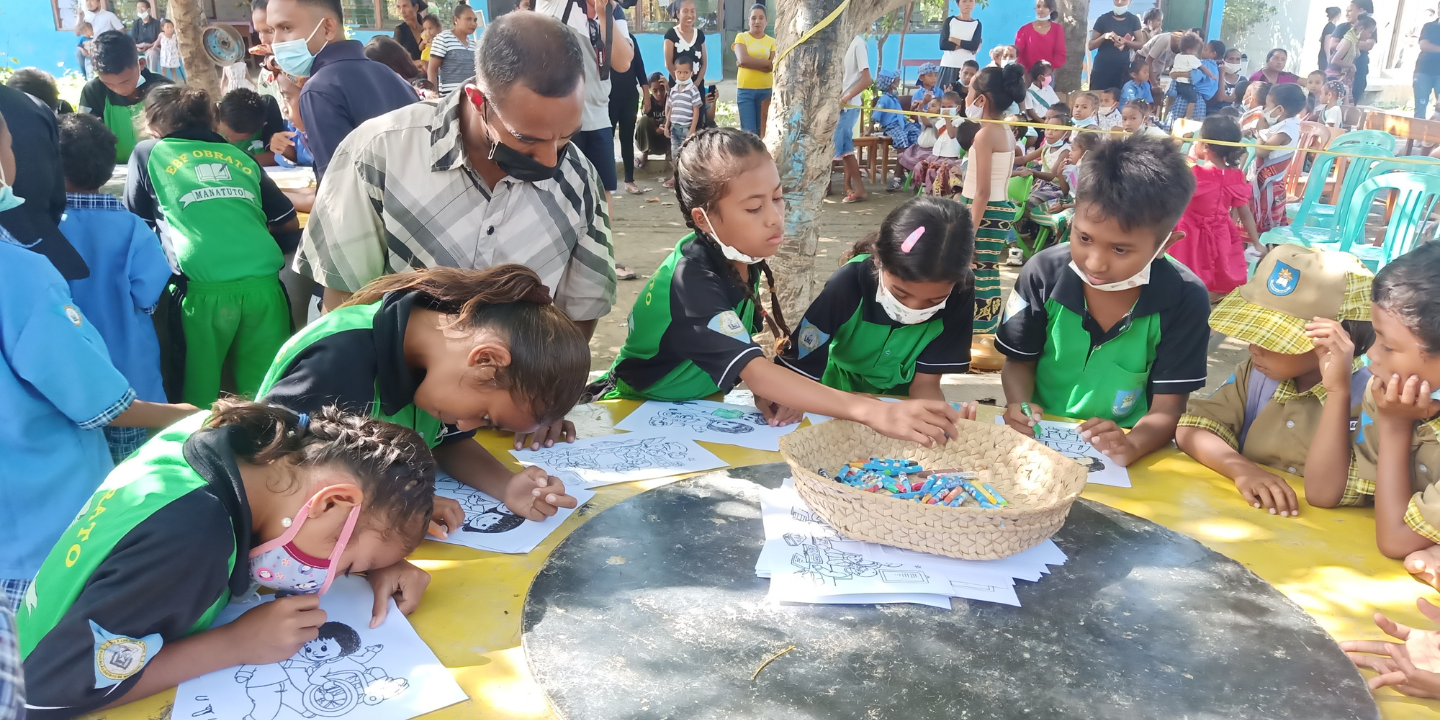
Investigating the impact of education reforms in Timor-Leste
Research 31 Jul 2023 7 minute readNew ACER research has found that school leader and teacher professional learning is helping to support curriculum reforms in Timor-Leste.
ACER has completed a multi-year study into the effectiveness of Australia’s investments in teaching quality and student learning in Timor-Leste. The study investigated how the Apoiu Lideransa liuhusi Mentoria no Aprendizajen (ALMA) program supports the Ministry of Education, Youth and Sport (MoEYS) to develop professional learning opportunities to support the implementation of its National Basic Education Curriculum.
The national curriculum reform focuses on improving literacy and numeracy, and reducing student drop out. It has been rolled out in stages for pre-school to grade 6 students, starting with grades 1 and 2 in 2015. ALMA aims to improve teaching and leadership in schools and has been introduced into 10 of 13 municipalities.
This research is part of a multi-year study series commissioned by the Australian Government’s Education Analytics Service to determine the extent to which Australia’s investments improve teaching quality and student learning in 3 countries: Lao PDR, Timor-Leste and Vanuatu. Educational reforms in Timor-Leste are being undertaken by the Government of Timor-Leste and supported by the Australian Government’s Department of Foreign Affairs and Trade (DFAT) through the Partnership for Human Development.
To analyse teaching quality and implementation of the new curriculum, interviews at national and municipal levels, and school level case studies in 6 municipalities were conducted over 3 years – in 2018, 2019 and 2021.
The study has found ALMA to be effective in strengthening elements of teaching quality and curriculum implementation across the municipalities. Importantly, the ALMA-facilitated Leaders of Learning program has directly contributed to an improvement in school leadership capacity, with a noticeable shift towards instructional leadership.
Results showed that Grade 1 to 4 teachers are more aware of – and using – student-centred teaching practices in the classroom, but to varying extents. The establishment of Grupu Traballu ba Professor (GTPs) – teacher peer learning groups organised in school clusters – have improved the knowledge of lesson planning and curriculum content. GTPs have also provided teachers with a forum to discuss new pedagogical approaches and practice new skills with peers.
‘The GTP does help,’ said a teacher interviewed through the study. ‘When we hold a GTP all the teachers come together... Some have less experience, some have more. So then when we come together and sit together, we complete each other…share ideas, advice, give each other guidance, so then we can all follow things properly and teach our students well.'
ALMA has improved the implementation of the new curriculum by providing access to lesson plans and activities on tablets. School leaders can actively use the tablets to monitor and observe the delivery of lessons by teachers against their lesson plans. However, there are some ongoing challenges with access to electricity and internet in remote areas.
While positive progress has been made towards improving teaching quality and curriculum implementation, evidence that ALMA has impacted student learning outcomes is inconclusive given the absence of student achievement data. There is no reliable or regular national assessment of learning outcomes.
Perception data has indicated that student-centred learning approaches have increased student engagement and interest in lessons – this was observed by some teachers to improve student academic outcomes.
One teacher commented about working in groups that, ‘These students actually really have discussions. They ask each other questions in their group. They are also used to going up the front and presenting their results…So this has also been a change.'
Evidence about student engagement is an important indicator of student performance and completion, especially without student achievement data.
In late April, ACER and DFAT met with MoEYS in Dili to present the study findings and discuss 14 proposed recommendations for strengthening education policies and programs in Timor-Leste. The recommendations form part of 3 key areas:
- strengthening aspects of the design and implementation of ALMA
- developing and expanding evidence by monitoring student learning
- improving the sustainability of key aspects of the ALMA program.
A key outcome of these meetings was a shared commitment to using quality evidence to monitor the impact of education investments on teaching quality and student learning. This study has uncovered valuable insights into the professional learning and teacher support required to effectively implement a new curriculum. As well as providing policymakers with evidence to support future education investments in Timor-Leste, learnings from the 3 countries involved in the EAS study series will be used to inform teacher professional learning programs in other low- and middle-income countries.
Further reading
Read the report highlights.
Read the full report.
Read other publications from the EAS Teacher Development Multi-Year Study Series.
Learn more about ACER’s education and development work.